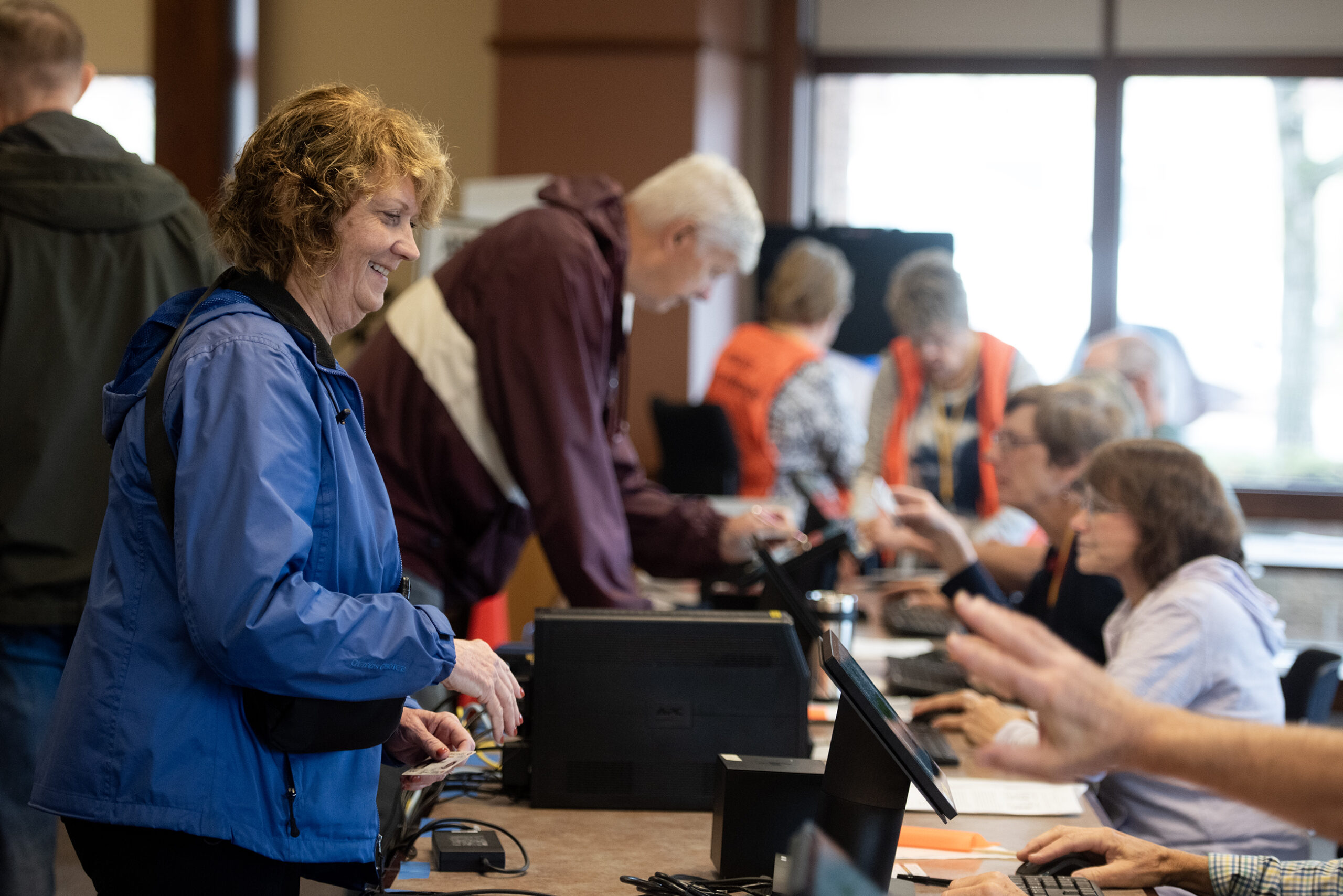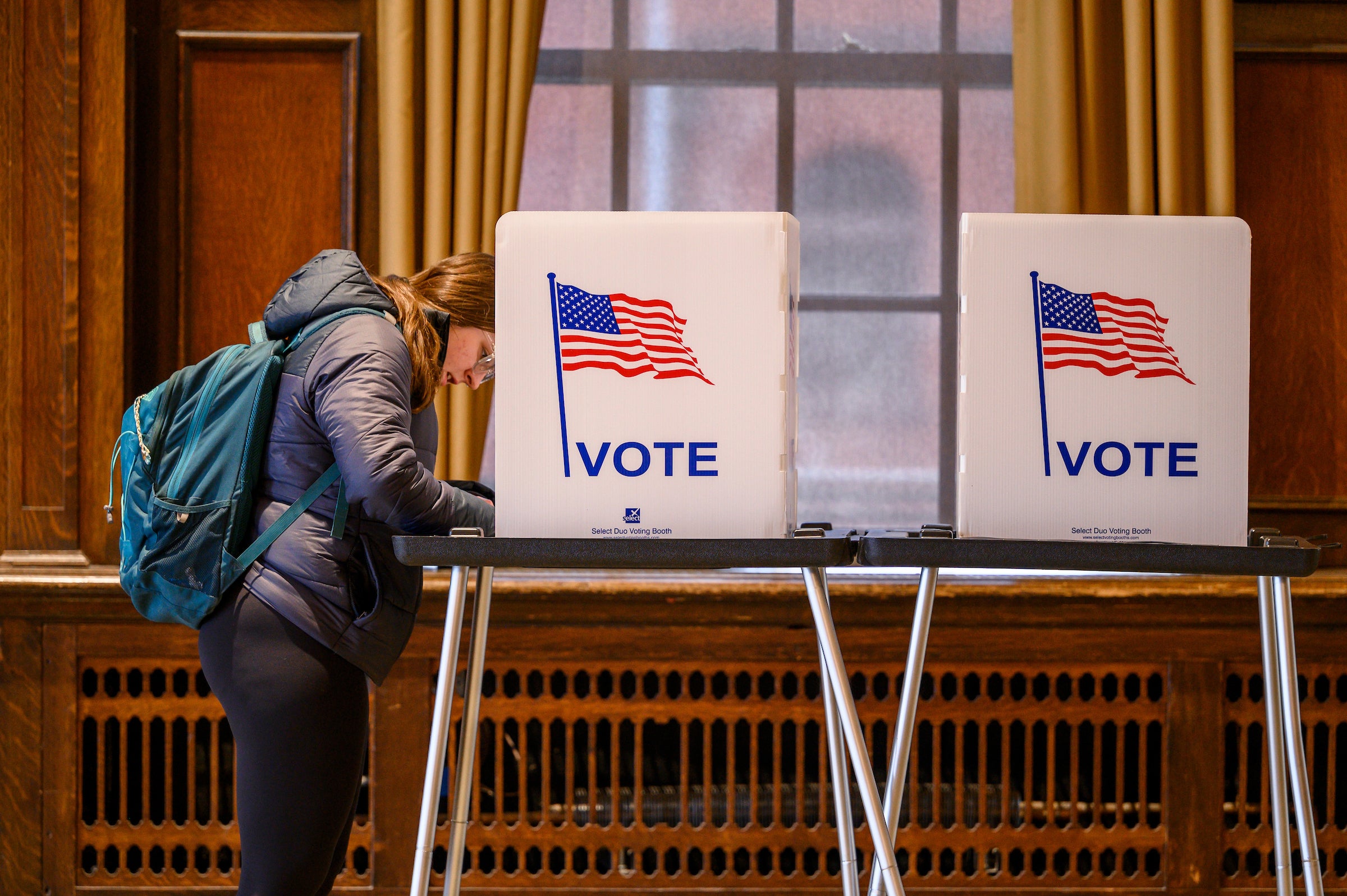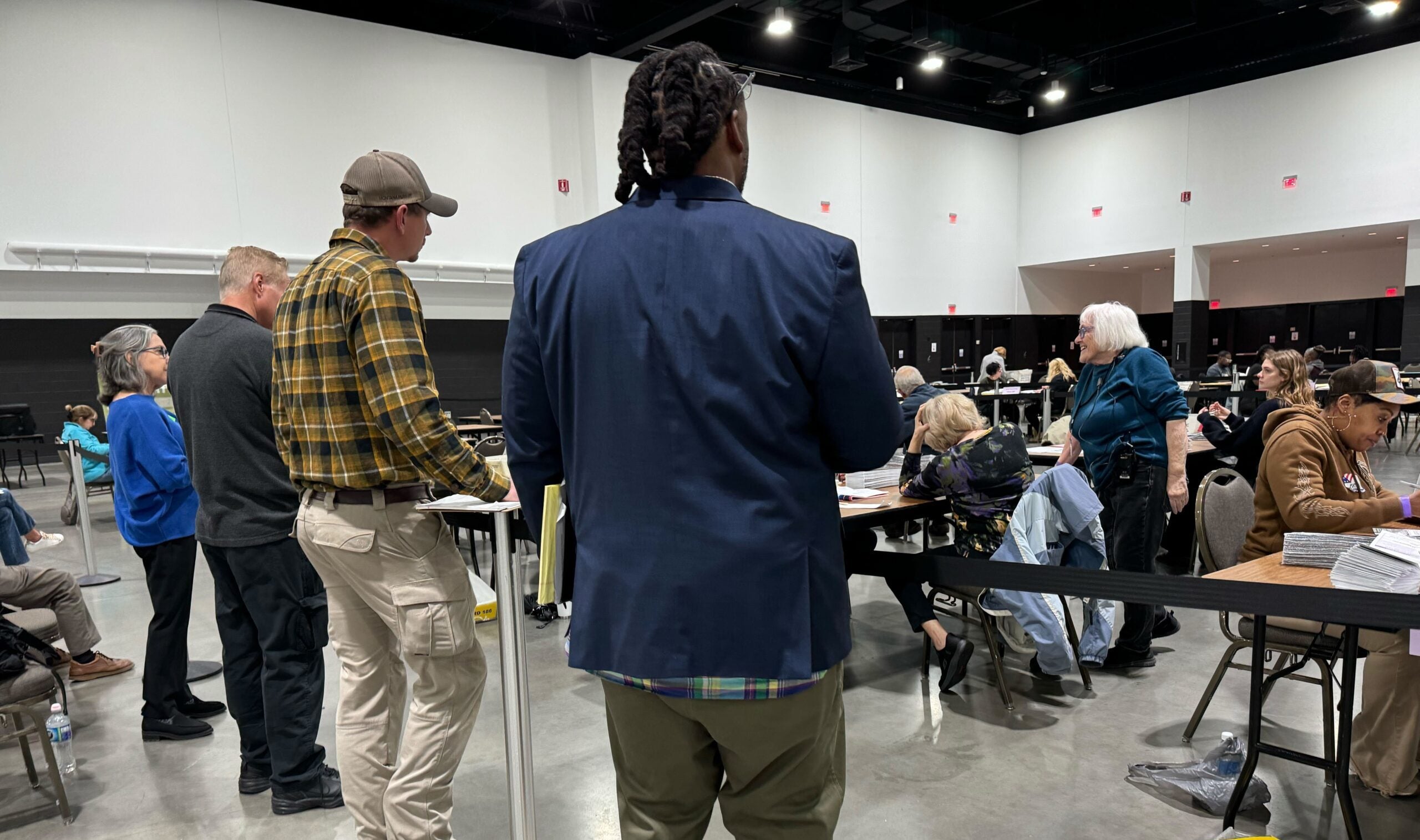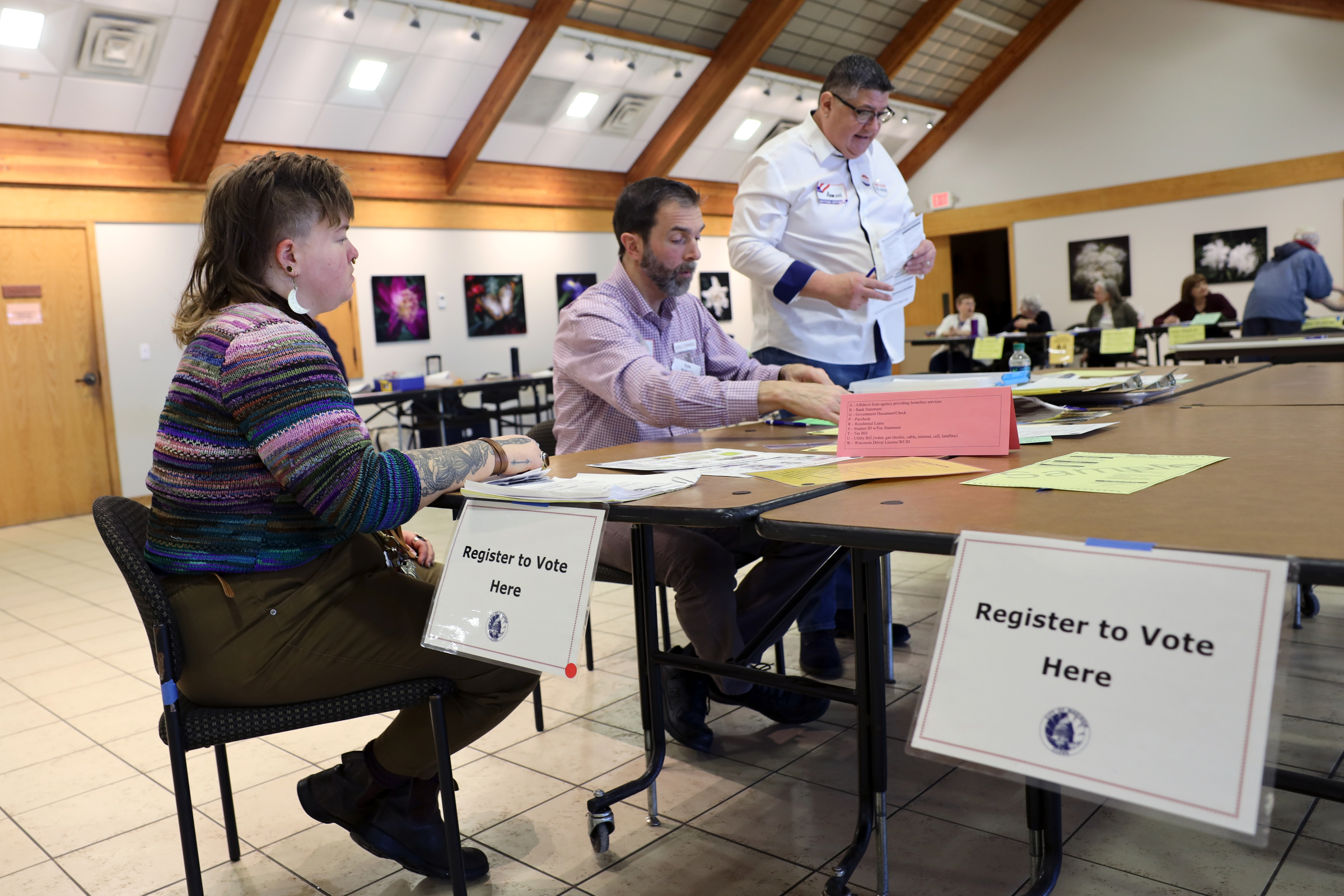Republican state lawmakers raised questions Tuesday about a 12-page rule proposal aimed at clarifying what Wisconsin election observers can and can’t do at polling places.
The Wisconsin Elections Commission, which drafted the rule, says the package is needed because state law is vague on questions ranging from how close observers can stand to what documents they can look at.
Election observers are individuals who oversee voters and local officials during the election process at polling places and central count locations in large cities where absentee ballots are processed.
Stay informed on the latest news
Sign up for WPR’s email newsletter.
While conservatives at the state and national level have called for more access since President Donald Trump’s 2020 loss, liberals and some local election officials have raised concerns about potential voter intimidation.
During a public hearing Tuesday, the Republican-controlled state Assembly Committee on Campaigns and Elections got a rundown on new rules for election observers and local election workers from Wisconsin Elections Commission Chair Ann Jacobs, a Democrat, and Commissioner Don Millis, a Republican.
The proposal has been in the works since August 2022 and received input from members of the Republican and Democratic Parties along with members of voting access and election integrity advocacy groups.
The new rules would allow observers to be between three and eight feet from tables where voters identify themselves and show identification. That’s the same distance outlined in existing state law. It would also allow observers to move between tables in a polling place and review voter information in poll books that isn’t confidential.
In response to complaints that some local clerks prohibited observers from using chairs and restrooms in polling places, the WEC rule package specifies that election officials cannot prohibit their use.
“This rule does an excellent job of ensuring that voters can vote without harassment or intimidation,” Jacobs told the committee. “And, I want to bring to our attention the very first clause of this proposed rule, nothing in this chapter shall be construed to distract, disrupt, obstruct, slow or prevent a qualified voter from casting a lawful ballot or registering to vote.”
State Rep. Paul Tittl, R-Manitowoc, asked Jacobs and Millis about repercussions for election officials, like a polling place’s chief election inspector, who violate state law or the proposed WEC rules. He said his office has heard complaints about election officials making observers stand “literally 50 feet away” from where voters got their ballots.
“I would just like to see some type of, even a threat of punishment,” Tittl said. “There is really no threat of punishment right now. You can file a complaint all you want. That doesn’t cure that day. That’s the problem.”
Millis told Tittl he agrees with the concern, but state agencies cannot create punishments via rule. He said it would have to be done through legislation.
Last year, Tittl introduced a bill that would have barred local election officials from placing observers more than 3 feet away from residents to give their name or register to vote. It also would have made it a crime for election officials to deny access to observers, punishable by up to 90 days in jail or $1,000 in fines.
Tittl’s bill passed the Republican-controlled state Legislature but was vetoed by Democratic Gov. Tony Evers.
Following Jacobs and Millis, the committee also heard testimony from people critical of the state’s election system who argued the rules don’t amount to anything because they don’t carry the weight of law.
Former Republican State Rep. Janel Brandtjen, a vocal 2020 election denier who lost an August primary election and now works as a staffer for Rep. Chuck Wichgers, R-Muskego, said the proposed rules give local election officials 60 days to respond to complaints lodged by observers, which she called “silly.”
“This is a great opportunity for lawmakers, of Republicans and Democrats to step forward, because this whole exercise doesn’t mean anything,” Brandtjen said. “And I’m really sorry to say, that for many of the people involved, this is not law. This is rules. If the clerks follow them or don’t follow it doesn’t matter. Nothing happens to them.”
Going forward, the Assembly elections committee can either request changes to the proposed election observer rules or pass them on to the Republican-controlled Joint Committee for Review of Administrative Rules, or JCRAR. That committee can then adopt the WEC proposal as-is, accept any potential changes from the agency or suspend the rule.
Wisconsin Public Radio, © Copyright 2025, Board of Regents of the University of Wisconsin System and Wisconsin Educational Communications Board.





